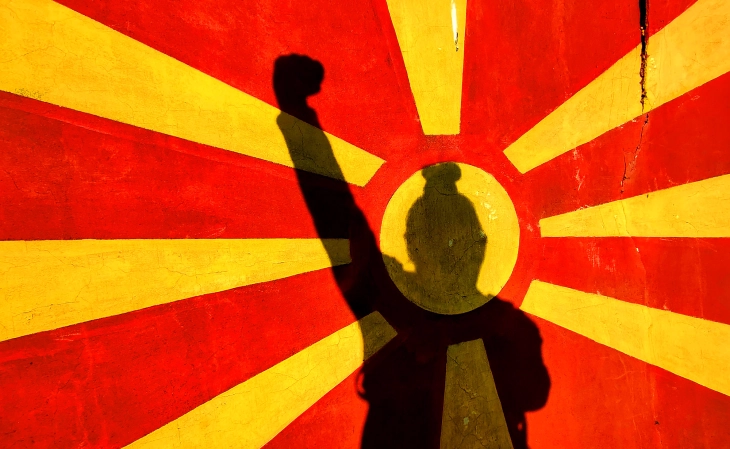North Macedonia celebrates 31 years of independence

Skopje, 8 September 2022 (MIA) – The Republic of North Macedonia marks Thursday the 31st anniversary of the 1991 referendum in which the citizens voted in favor of an independent and sovereign state.
The Government is organizing several events and cultural activities across the country to celebrate September 8 – Independence Day under the theme of “United in Freedom”.
The central event, celebrating the sovereignty, independence and statehood of our country and the Macedonian people will be held at the Ibni Pajko park on Thursday (September 8) at 7:30 pm. It will be broadcast live on the National Radio-Television, as well as the Government’s official social network channels.
A number of performances, including songs by popular singers and bands, as well as DJ performance are planned as part of the central celebration, which will be addressed by Prime Minister Dimitar Kovachevski.
Events to mark 31 years of the country’s independence will begin at early on Thursday, with a delegation led by PM Dimitar Kovachevski, including First Deputy PM and Minister of Political System and Inter-Community Relations Artan Grubi, Defence Minister Slavjanka Petrovska, Health Minister Bekim Sali and Minister of Transport and Communications Blagoj Bochvarski, to pay tribute and lay wreaths of flowers at the graves of former Presidents Kiro Gligorov and Boris Trajkovski at the Skopje Butel cemetery.
To mark Independence Day, President Stevo Pendarovski will give the “September 8” state award to Olivera Nakovska-Bikova for her outstanding, rich and successful sports career in paralympic and sport archery, to Branimir Jovanovski, Shaban Trstena and Dejan Georgievski.
The “September 8” state award for lifetime achievement and achievements in the field of sports to be presented to this year’s laureates in the Parliament.
At 10 am, PM Kovachevski will attend a ceremony during which President Stevo Pendarovski will be presenting state awards at the Villa in Vodno.
From 11 am to 2 pm, an event will be taking place at the City Park in Skopje, including a children’s program with the participation of the Children and Youth Theater, as well as military demonstration exercises conducted by members of North Macedonia’s Army and the Ministry of Interior. Defense Minister Slavjanka Petrovska and Interior Minister Oliver Spasovski are to give media statements at 12:30 pm.
In addition, an Open Day for Citizens event will start at 11 am, whereby citizens will be offered free entrance to cultural institutions, museums and galleries across the country.
On Sept. 8, 1991, an overwhelming majority of citizens – over 95 percent – said they were ‘in favor of an independent Macedonia with the right to join a future alliance of sovereign Yugoslav states’.
The referendum was preceded by the Declaration of Independence passed on Jan. 25, 1991 by the first multi-party Macedonian Parliament.
The will of the people for an independent state was confirmed with the Declaration on the Acceptance of Referendum Results on Sept. 18, 1991 in the Macedonian Parliament.
The next important step in the strengthening of the new state was the adoption of the Constitution on Nov. 17, 1991.
Today, North Macedonia is an independent and sovereign state, recognized by its neighbors, and a member of NATO that is about to start negotiating with the EU to join.
On March 27, 2020, North Macedonia officially joined NATO after the national assemblies of its 29 members passed the country’s membership ratification. Also, North Macedonia signed a Treaty on Friendship and Good Neighborliness with Bulgaria in August 2017.
On July 19, 2022, after 17 years of candidate status for EU membership, the country, after accepting the French proposal and signing the bilateral protocol that lifted the blockade of Sofia, held the first intergovernmental conference in Brussels, which marked the opening of the North Macedonia’s accession negotiations. Constitutional amendments are to be adopted, which will pave the way for holding the second intergovernmental conference and the official start of negotiations. The VMRO-DPMNE opposition party disputes the Friendship Treaty with Bulgaria and the constitutional amendments and launched an initiative for a referendum.
In the past three decades, the country has gone through a myriad of difficulties. A triple-digit inflation in the early 1990s, the Greek embargo, the Kosovo refugee crisis and the 2001 conflict were serious challenges and threats for the young Macedonian state hindering its path in accomplishing the strategic goals – strengthening of democracy, economic development and integration with the Euro-Atlantic institutions.
The country’s Euro-Atlantic integration path was opened by the signing of the Prespa Agreement on June 17, 2018, solving the decades-long name dispute with Greece, which had blocked the country’s EU membership aspirations.
North Macedonia, despite all obstacles, remains on its European path, and according to all political stakeholders in the country, expects to solve the misunderstandings soon and fulfill its strategic goals of joining the EU, strengthening democracy, and developing its economy.







